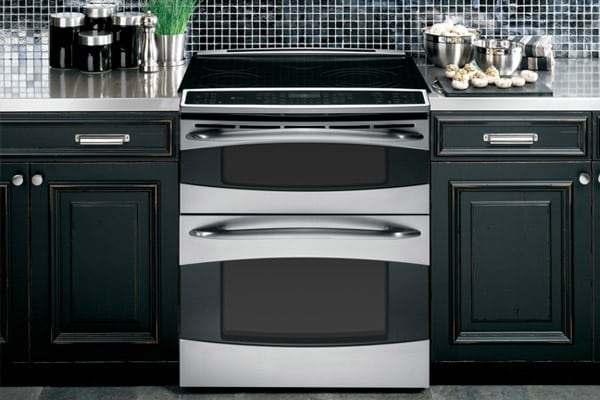
It’s Getting Hot in Here: When Your LG Oven Overheats
LG has made a name for itself with high-end, innovative kitchen appliances. Its ovens, in particular, are beautiful and efficient, suitable for even the sleekest of kitchens. Unfortunately, even well-regarded, reliable appliances fail occasionally. With LG ovens, one of the most common problems is an intermittent issue with overheating. This can lead to frustratingly over-cooked meals and burnt baked goods.
You don’t have to wait anxiously each time you use your oven, though, wondering if this is the time your LG oven overheats. An experienced oven repair company like Advantage is well-versed in all oven heating issues, including LG models. Expert repair professionals know what to look for in particular models and what to do to fix them correctly.
You can help this troubleshooting and repair process along with a few easy steps.
Pay Attention to Your Oven
So many of us use our kitchen appliances rotely, without conscious thought of what we’re doing. That’s understandable considering how busy our lives are. On the other hand, that kind of inattention to our appliances and how they’re responding can allow problems to fester. One of the best things you can do to ensure that your oven is working well is to pay attention to its performance. You should know how long it usually takes your oven to heat to the desired temperature. You should pay attention to how quickly it cools when you’re done baking. Does the fan run continuously for a long time after cooking? Does it lose or gain temperature after long bouts of use. If you know how your oven typically performs, you’re better able to spot when it starts to act erratically.
Take Note of Changes
Once you’ve identified any variations in your oven’s performance, delve further into the issues. If your LG oven overheats only occasionally, try to determine if there are consistent circumstances surrounding the overheating. Does it only overheat when you’ve set it for a certain temperature? Does the heating occur during periods of heavy or light oven use? Does the problem only happen after the oven’s been used and cooled and then fired up again? The answers to these questions can be valuable information to your oven repair tech.
Find the Right Repair Expert for the Job
If you don’t already have a trusted oven repair company, now’s the time to find one. Not all repair companies are equally qualified, and you want one that’s going to get the job done right. Call a couple of local oven repair businesses and ask about their experience with your particular brand of oven. Ask if this occasional overheating is common with your oven brand. Find out how the problem is usually solved and for what price. Ask if the repair tech’s van is well-stocked to handle all of the potential issues with your oven. Whether your oven is an LG, Samsung or GE, you want a repair company that has oodles of experience. This vetting of potential oven repair companies doesn’t have to take a lot of time, but it can save you tons of time in the long run.
What’s Causing Your Oven’s Heating Problem?
Your oven has several components involved in achieving the correct temperature.
1. Thermostat- Your oven’s thermostat regulates the temperature in your oven by sensing the temperature inside. It shuts the heating off when it senses that the desired temperature is reached. It triggers the heating to come back on when the temperature drops below the desired range. In the case of an oven overheating, a malfunctioning thermostat could be incorrectly sensing the temperature. It could also be failing to trigger the on/off response.
2. Heating Element- In electric ovens, the heating element turns on when triggered by the thermostat. If the heating element isn’t properly receiving the signal to stop heating, your oven can overheat. Several issues can cause this malfunction, ranging from a broken heating element to problems with electrical flow.
3. Temperature Sensor- This part notes the temperature in your oven and acts accordingly. Sometimes, connections inside the sensor can malfunction, leading to overheating.
4. Fan Ovens often use fans to properly circulate the heat evenly. A failing oven fan can cause hot spots in the oven that burn and overcook food.
5. Selector Switch- Selector switches are the intermediaries communicating information between your thermostat and your heating element. If the selector switch is the suspected culprit for your oven overheating, your repair pro will test it. Never try to do this yourself, as it involves potentially dangerous currents of electricity. Only professionals should attempt to handle your oven’s electrical system and components.
6. Dirt- We often emphasize the importance of keeping your oven clean, and it’s for a good reason. Grime, dirt, spills and food overflows can build up in your oven if not attended to immediately. This build-up can cover up important temperature sensors, thermostats and switches, and it can damage the heating element. If any of these vital components are impeded, they can’t do their job properly. This can lead to overheating as well as underheating. It can also lead to fire hazard.
Whatever the cause of your oven overheating, it’s never fun to open your oven to a burnt meal. Don’t suffer through the problem, thinking that it will resolve itself. An oven repair expert can usually troubleshoot, diagnose and fix the problem in no time. It’s worth the peace of mind knowing that you won’t have to deal with an LG oven overheating again.

Amana Dryer Not Heating? Follow These Steps to Fix it

Appliance Repair: 5 Hacks for Buying the Right Oven

Appliance Repair: 5 Hacks for Buying the Right Oven

Tips for Deciding: Repair or Replace That Dryer?


